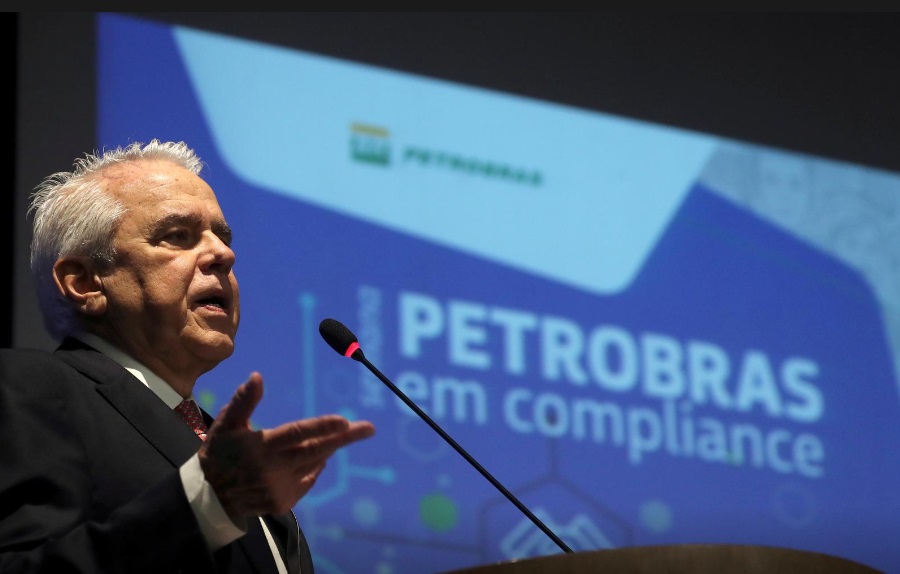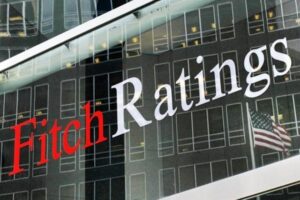
(Argus, 22.Feb.2021) — The share price of Brazil’s Petrobras nosedived today after President Jair Bolsonaro moved to overhaul the state-controlled company’s management, heralding a return to state intervention and threatening to derail a $25bn-$35bn divestment plan.
The stunning development sent shock waves through the company’s executive ranks and the investment community long enamored of the non-Opec country’s pre-salt oil bonanza.
The controversial move followed weeks of tensions over rising diesel prices, finally boiling over on 18 February after Petrobras increased wholesale diesel prices by 15pc in line with its market-based pricing policy. The next day Bolsonaro announced a two-month suspension of a federal diesel tax and a proposal to overhaul state-level tax ICMS. Hours later — after financial markets closed — he said former army general Joaquim Silva e Luna would replace Petrobras chief executive Roberto Castello Branco.
The nomination of Silva e Lima, a one-time defense minister and current head of Brazilian-Paraguayan hydroelectric company Itaipu Binacional, will be considered at a 23 February extraordinary board meeting, Petrobras said.
His almost certain confirmation would put military brass in near-complete control of Brazil’s strategic energy sector, as the mines and energy ministry and oil regulator ANP are led by former navy officers.
Castello Branco, a University of Chicago-trained economist who has led Petrobras since 2019, was overseeing an extensive program of asset sales, including half of the company’s 2.2bn b/d refining system. Because market-based fuel pricing is critical to downstream investment, the planned sales of eight refineries by year’s end — already seen as ambitious in light of pandemic-hit market dynamics — now look uncertain.
Petrobras has received a $1.65bn final offer from Abu Dhabi’s Mubadala to acquire the 333,000 b/d Landulpho Alves refinery (RLAM), the first of the eight assets to advance to the final sales stage. But the deal still needs to be approved and consummated amid volatile conditions. Emboldened by Bolsonaro’s announcements, oil unions are now maneuvering to stop the RLAM sale through court action.
Bolsonaro’s move departs from his administration’s pro-market policies embodied by economy minister Paulo Guedes, a proponent of privatization loathed by the country’s powerful labor unions.
Inside Petrobras, executives who had prided themselves on autonomy from the systematic meddling that marked the past administrations of presidents Luiz Ignacio Lula da Silva and Dilma Rousseff are still coming to terms with the looming boardroom changes.
The move is also unsettling traders in the motor fuels market, who were already warning of a possible diesel shortage in March amid dwindling imports. To many, Petrobras’ sudden price hike last week was interpreted as a green light for trading companies and fuel retailers to ramp up imports.
Market jitters
Castello Branco would be the second chief executive in under three years to be pushed out over fuel pricing struggles with the federal government. In 2018, Pedro Parente stepped down when the government adopted a diesel price subsidy to quash a crippling 11-day truckers’ strike.
Brasilia’s mode of communicating the overhaul has caught the eye of Brazil’s securities watchdog CVM, which is considering a probe into the impact of the sudden announcement made by Brazil’s mines and energy ministry on 19 February.
Petrobras’ share price plunged by 20pc on the B3 exchange by midday today, dragging down the wider market.
One industry executive privately warned that Petrobras is now on a “bad path” that will likely disrupt the refinery sales. The assets account for the bulk of the divestment revenue that Petrobras plans to raise through 2025 as a way to bring down its $70bn debt load.
Ilan Arbetman, analyst with Brazil’s Ativa Investimentos, told Argus the managerial shift would be “damaging” for Petrobras following a “decade of mismanagement that started to get better with Pedro Parente and continued with Castello Branco.”
BTG Pactual said the key question is how the change will impact the asset sales plan, warning that the new management might no longer see this as a priority “while the controlling shareholder is concerned with the political implications of fuel price volatility.”
Even if the divestments proceed, “we also believe that the market value of these refineries will be much lower,” the investment bank said today.
In further thorny remarks this morning, Bolsonaro accused Castello Branco of avoiding work by staying at home during the Covid-19 pandemic. “For me, the boss has to be in front, as well as his directors. This is unacceptable for me.”
____________________
By Nathan Walters

